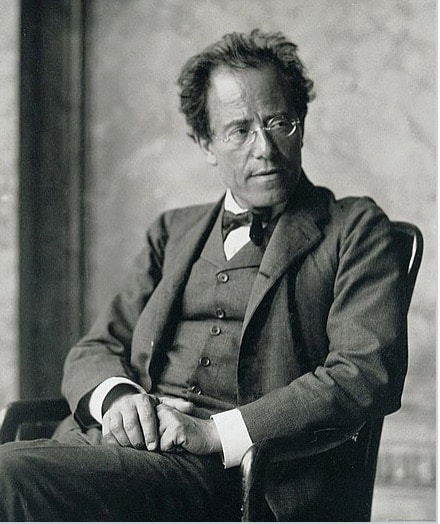
Gustav Mahler was born on July 7, 1860, in Kaliště, Bohemia, which was then part of the Austrian Empire and is now located in the Czech Republic. Gustav grew up in the vibrant city of Jihlava where he was exposed to the local folk melodies, dance tunes and marches of the local military band. His musical career began at a young age with piano lessons from a local music teacher. By age 10, his skills as a pianist had earned him a local reputation as a prodigy and he delivered his first public performance at the town theatre. Gustav later attended the Vienna Conservatory, where he studied composition and conducting. During this time, he also worked as a conductor at various opera houses and concert halls.
In 1878, Mahler was awarded a diploma from the Vienna Conservatory in 1878 with a diploma, but did not receive the silver medal for outstanding achievement. At the urging of his father, Gustav enrolled in the University of Vienna, where he studied literature and philosophy, acquiring a life-long interest in the philosophy of Schopenhauer, Nietzsche and Fechner.
Throughout the next decade, Mahler took a succession of jobs, originally conducting performances of various operas, and later focussing on the works of Wagner and Mozart. In early 1888, he completed his first major orchestral work, the Symphony No. 1. It was premiered in Budapest on November 20, 1889 to an unresponsive audience prompting one critic to declare that Mahler was not composer material. This was followed by his “Resurrection” Symphony that he completed in 1894, his third symphony completed in 1896, and his fourth symphony completed in 1900. His fifth symphony was completed in 1902 and he conducted its premiere performance in Cologne, Germany in 1904. Mahler’s symphonies, known for their large-scale structures and complex emotional depth, would become the contribution to the musical repertoire for which he is most remembered. He once opined, “If a composer could say what he had to say in words, he would not bother trying to say it in music.”
Mahler’s career as a conductor took off when he became the director of the Vienna Court Opera in 1897, and subsequently secured a lucrative contract to serve as the principal conductor of the New York Philharmonic from 1909 to 1911. As a conductor, he was known for his meticulous attention to detail and his ability to bring out the nuances of the music he conducted.
Despite his success as a conductor, Mahler faced numerous challenges and personal tragedies throughout his life. He struggled with anti-Semitism, and as a Jew, he faced discrimination in his professional and personal life. Mahler also experienced personal losses, including the death of his young daughter, Anna, and later the divorce from his wife, Alma, which deeply affected him and influenced his compositions. By the summer of 1910, Mahler had composed 9 symphonies and was working on his tenth symphony, but progress was slowed by a return to New York and a busy schedule of conducting. In February 1911, Gustav Mahler became ill with bacterial carditis and though bed-ridden for weeks, he attempted to resume his work, but on May 18, 1911, he succumbed to pneumonia and entered a coma from which he never emerged.
Mahler’s music was not widely appreciated during his lifetime, and he often faced criticism for its complexity and emotional intensity. However, after his death in 1911, his works gained increasing recognition and became staples of the symphonic repertoire. Today, Mahler is considered one of the greatest symphonists in the history of classical music, and his music continues to be performed and celebrated by orchestras worldwide.
